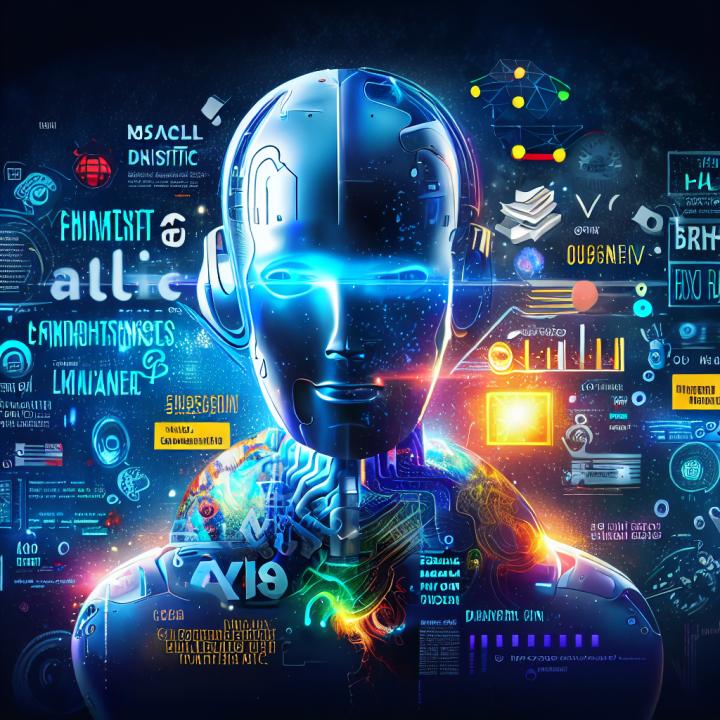Mastering AI-Powered Marketing: A Guide for Modern Marketers
In an era defined by data and digital engagement, AI-powered marketing has emerged as a transformative tool, helping businesses automate, optimize, and personalize their interactions with customers. As more marketers harness AI to drive results, mastering AI-powered marketing becomes essential to staying competitive. Here’s how you can leverage AI to elevate your marketing strategy.
1. Understand the Core Capabilities of AI
Before diving in, familiarize yourself with what AI can actually do for marketing. AI’s core capabilities in this field include data analysis, automation, personalization, predictive analytics, and content generation. AI can analyze massive datasets to identify trends and customer behavior patterns that would otherwise go unnoticed. It can also automate repetitive tasks, such as email follow-ups and social media posting, allowing marketers to focus on strategic initiatives. Personalization, one of AI’s most impactful uses, tailors the marketing experience to each individual customer, making interactions more relevant and engaging.
2. Leverage Predictive Analytics
Predictive analytics is a game-changer in understanding customer behavior. AI algorithms can analyze historical data to predict future customer actions, allowing marketers to anticipate needs and refine targeting. For instance, by examining past purchasing patterns, AI can identify which customers are likely to make a purchase in the near future, or which ones might churn. This data can then inform retargeting campaigns, loyalty offers, and personalized content, helping you to retain customers and boost conversion rates.
3. Use AI to Automate Repetitive Tasks
Automation is one of the easiest ways to start incorporating AI into your marketing strategy. Tasks such as lead scoring, email marketing, social media posting, and customer service responses can be efficiently handled by AI, freeing up your team for high-impact work. AI-powered tools can segment audiences, schedule and send out emails, and even personalize content based on user behavior. Chatbots are another powerful tool for automating customer service and handling common queries, available to respond to customers 24/7 and significantly improving customer satisfaction.
4. Personalize Content at Scale
Customers today expect personalized experiences. AI allows marketers to create individualized journeys for each user by tailoring content based on customer data. Using machine learning algorithms, AI tools can assess individual preferences, past interactions, and browsing behavior to suggest personalized product recommendations or customized email content. This hyper-personalization can improve engagement rates and foster brand loyalty, as customers feel a more personal connection with brands that understand their unique preferences.
5. Enhance Customer Experience with Chatbots and Virtual Assistants
AI-powered chatbots and virtual assistants are transforming customer experience, allowing brands to provide instant, personalized responses. Chatbots can manage initial customer inquiries, resolve common issues, and direct complex queries to human agents. They improve response time, enhance the customer experience, and free up human agents for more nuanced customer interactions. Implementing AI-driven customer support systems helps keep customers satisfied, even outside regular business hours.
6. Optimize Content Creation and SEO
AI tools can generate ideas, streamline content creation, and even optimize SEO by analyzing the latest trends and keyword searches. Tools like ChatGPT, for instance, can create blog post drafts, product descriptions, or social media captions, saving time and maintaining quality. Additionally, AI can analyze competitors’ SEO strategies, allowing marketers to improve their own rankings and attract more organic traffic.
7. Measure and Adapt with Real-Time Analytics
Finally, AI-powered analytics tools enable real-time tracking of campaign performance, giving marketers the insights they need to adapt quickly. With AI, you can monitor metrics, such as engagement, click-through rates, and conversion rates, to understand what resonates with your audience and adjust your strategy accordingly. This allows for agile marketing, where you can test and refine campaigns in response to real-time feedback.
Conclusion
Mastering AI-powered marketing isn’t just about adopting new technologies—it’s about transforming the way you approach customer engagement and optimizing every step of the customer journey. By leveraging AI for data insights, personalization, automation, and real-time adaptation, you’ll create more meaningful, impactful campaigns that resonate with your audience. As AI continues to evolve, so too will the opportunities to enhance and innovate within your marketing strategy. Embrace AI today to become a leader in the marketing world of tomorrow.
https://hardworkpays.now.site


Comments